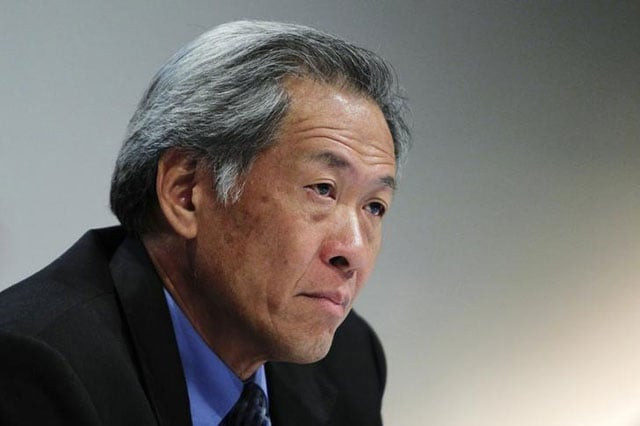Threat from extremist groups to southeast Asia growing: Singapore defense chief
Over 1,000 Southeast Asians have flocked to join Islamic State's self-declared "caliphate" in Iraq and Syria

PHOTO: Reuters
Ng was speaking to reporters following a meeting of Southeast Asia defense ministers with US Defense Secretary Ash Carter in Hawaii, where the defense chiefs devoted a major chunk of time to discussing the threat from Islamic State and similar groups.
Over 1,000 Southeast Asians have flocked to join Islamic State's self-declared "caliphate" in Iraq and Syria, Ng said.
"Every year we meet, the situation and threat from extremist terrorism rises," Ng said. "Compared to, say, a year or even two years ago, they're more organized...they're more networked, they're more clear in their articulation of what they want to achieve."
Security officials said in June that Southeast Asian militants who claim to be fighting for Islamic State said they had chosen one of the most wanted men in the Philippines to head a regional faction of the group.
Authorities in the region have been on heightened alert since Islamic State claimed an attack in the Indonesian capital Jakarta in January in which eight people were killed, including four of the attackers.
Ng cited a recent plot in which an Indonesian cell coordinated by an Islamic State member in Syria had planned to shoot up hotels in Singapore's Marina Bay area. The plot was foiled by Indonesian authorities, he said.
"They have gone beyond networks to push the flow of funds, weapons. They are already plotting," Ng said.
Pentagon confirms Islamic State leader was killed in air strike
US defense officials believe that hundreds of citizens from Southeast Asia have returned to their home countries after joining Islamic State in Iraq and Syria, raising concerns that they may try to launch a wave of attacks.
Ng said Southeast Asian defense chiefs believe that if Islamic State were destroyed in its base in Iraq and Syria, that would actually increase the risk to their region in the short-term, because seasonedIslamic State fighters would likely return home. The United States is leading an air campaign to dislodge Islamic State from Iraq and Syria.
"They would decide to come back, some re-energized, some trained and the networks would still be existing," Ng said.



















COMMENTS
Comments are moderated and generally will be posted if they are on-topic and not abusive.
For more information, please see our Comments FAQ